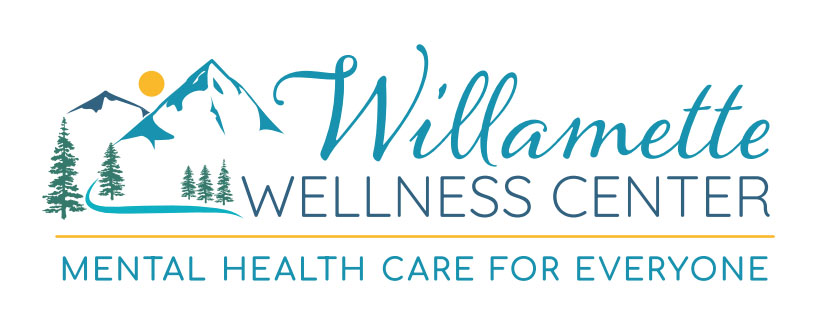Blog Post By Arin Wallington
Portland Trauma Therapist Nafisha Tabassum: Healing PTSD Through Art and Compassion

Healing from trauma isn’t always linear. It’s more like painting a canvas — adding color, layering brushstrokes, and slowly creating something new.
For Licensed Professional Counselor Associate Nafisha Tabassum (she/her), therapy is about helping clients reclaim their own canvas after PTSD, grief, or trauma has blurred the picture.
From Dallas to Portland: A Healing Home
Nafisha’s journey into counseling has roots in both science and creativity. After completing her master’s degree in Dallas, Texas, she moved to Oregon. “I love the state. It’s very different from where I’m from. Oregon has been a very healing experience for me,” she explains.
The green landscapes, the mountains on the horizon, even the rain became restorative. “Whenever I travel and I come back to PDX, I find myself having a big sniff of the air, and I’m like — this feels really great.”
Now rooted in Portland, Nafisha helps others find their own sense of balance and healing through therapy.
Trauma and PTSD Counseling in Portland
Nafisha is drawn to working with clients who’ve experienced trauma, grief, or PTSD. “I think something that really inspires me to go forward and talk to these people is my fascination with the way the mind works, the brain works. And how trauma has impacted a lot of people behaviorally as well.”
Her background in biology and neuroscience deepens that interest. “Growing up, I majored in biology, so I was fascinated with the brain. I studied neuro for a while. I love that connection — because when you educate yourself on it, you’re able to help people heal a bit better.”
Still, she emphasizes she isn’t “fixing” anyone. “Obviously, I’m not here to heal people. I think what we’re here to do is have a guide and move people towards a path of healing.”
Blending Art and Therapy for Healing
Art has always been part of Nafisha’s life. “Van Gogh and Monet are just, like, my go-to. I love them,” she says. Painting is more than a hobby — it shapes her therapy style.
“Painting really did help soothe a lot of people. Having that artistic component helped me be more creative in my modalities and the ways I like to talk to people, treat people, and connect with people.”
For her, therapy is like art: sometimes messy, sometimes abstract, but always layered with meaning.
Creative Therapy Approaches Beyond Talk
Not every client wants to talk for an entire session — and Nafisha honors that. “A lot of the time, in session, people will be like, ‘Well, today I kind of don’t want to do talk therapy. Can we do something else?”
That’s when creative methods come in. “If we do any sort of art therapy modality, if I’m able to send over a coloring page and we just color together, or do sandbox methods in person, it helps clients ground themselves. We don’t always have to talk.”
Even online, she uses alternative tools, such as guided imagery, meditation, or online games.
“Sometimes people say, ‘I just don’t want to talk today.’ And I’m like, oh yeah, of course. Eventually, they open up and say, ‘Well, while we’re here, this has been kind of on my mind.’ It’s like a transition.”
Therapy doesn’t have to start with words. Sometimes the brushstrokes come first, and the story follows.
What to Expect in Counseling Sessions
Many new clients bring anxiety about what therapy will be like. Nafisha meets that fear with reassurance. “They come in thinking they’re going to be judged, or that I’ll pick apart their brain. Even pop culture paints extremes — either you just talk and nothing happens, or the therapist diagnoses you immediately.”
Instead, she focuses on creating a safe environment. “This is a safe space, and this is for you. We will do whatever you think is necessary, at your pace. There’s no rush.”
Coping with Stress and Anxiety in Portland Life
Living in Portland brings its own unique set of stressors. “There’s so much going on here all the time. People can feel overwhelmed by the constant activity,” Nafisha explains. Add politics, social issues, and national news, and stress often feels compounded.
That’s why she encourages people to slow down. “With every city, it’s very fast-paced. So I think just slowing down your mornings and trying to find the little wins each day really does help your nervous system and prepare you for the day.”
Daily Habits That Support Mental Health
One of Nafisha’s favorite tips for clients is simple: disconnect from technology. “Now more than ever, it’s becoming one of those daily habits — if I wake up, I’m not going to be on my phone. I’m going to go straight to making my bed, or something else. Disconnecting helps regulate your nervous system.”
She often suggests journaling instead. “It literally does not have to be anything big. Maybe write, ‘I ate eggs for breakfast today.’ That makes you notice little things. You’re more present and grounded.”
Like an artist sketching quickly a scene, it doesn’t matter if it’s pretty — what matters is the act of noticing.
How Trauma Therapy Helps Clients Rediscover Strength
The biggest shift she sees is clients realizing their resilience. “People who come in are very brave. They don’t realize it until later when they say, ‘I did this. I took myself out of it, and I’m okay.’”
These moments inspire her. “You’re this person you’ve been beating yourself up for, but you don’t realize you’re actually very strong. If you put your mind to it, you can do whatever you want to accomplish.”
For Nafisha, it’s like watching someone step back from their own canvas and see the full picture for the first time.
A Safe and Supportive Therapy Space
 Her cat, Misu, often joins sessions — a symbol of healing in his own right. “When we first got him, he would always hide under the sofa. At the three-week mark, we celebrated that he wasn’t hiding anymore. That meant he was warming up to us.”
Her cat, Misu, often joins sessions — a symbol of healing in his own right. “When we first got him, he would always hide under the sofa. At the three-week mark, we celebrated that he wasn’t hiding anymore. That meant he was warming up to us.”
Now, he naps beside her during work. “He was such an anxious kitty when we got him. Now he’s very brave.”
For clients, Misu is a gentle reminder: progress happens in small, steady steps, until one day you’re no longer hiding — you’re safe enough to rest in the open.
Start Trauma & PTSD Counseling in Portland Today
For Nafisha, therapy is about guiding people back to themselves, brushstroke by brushstroke. Each client brings a unique canvas. Some arrive with layers of pain. Others bring blank space, unsure of where to start. All are welcome.
“If you’re ready,” she says, “therapy can be your space to explore, to reflect, to relax, and to rediscover your strength.”
Fill out the new client form to get started on your healing journey today.

